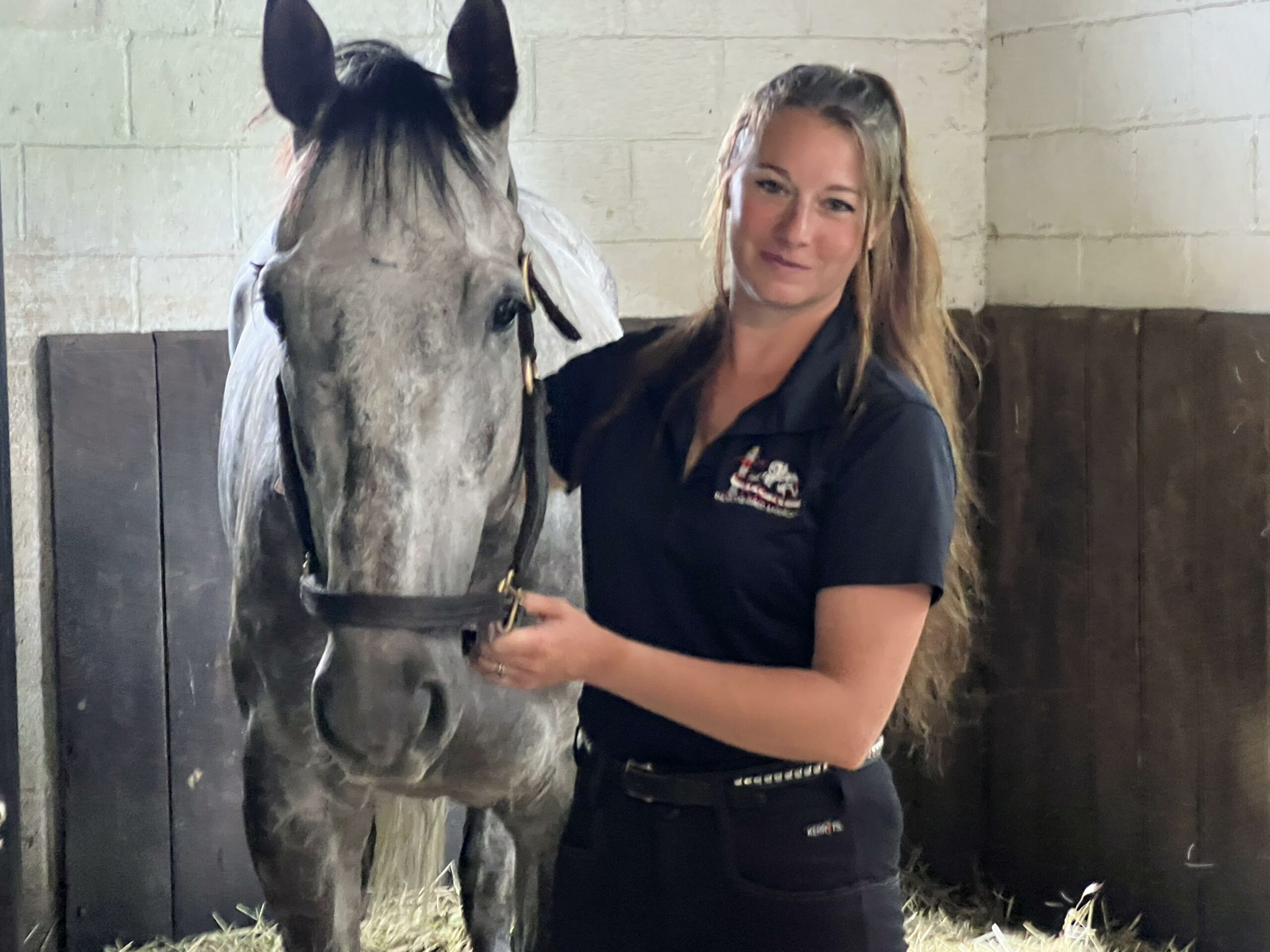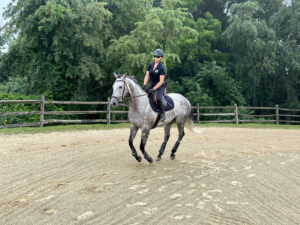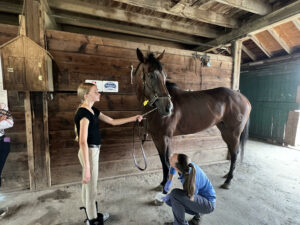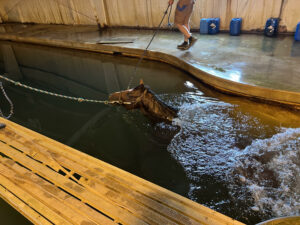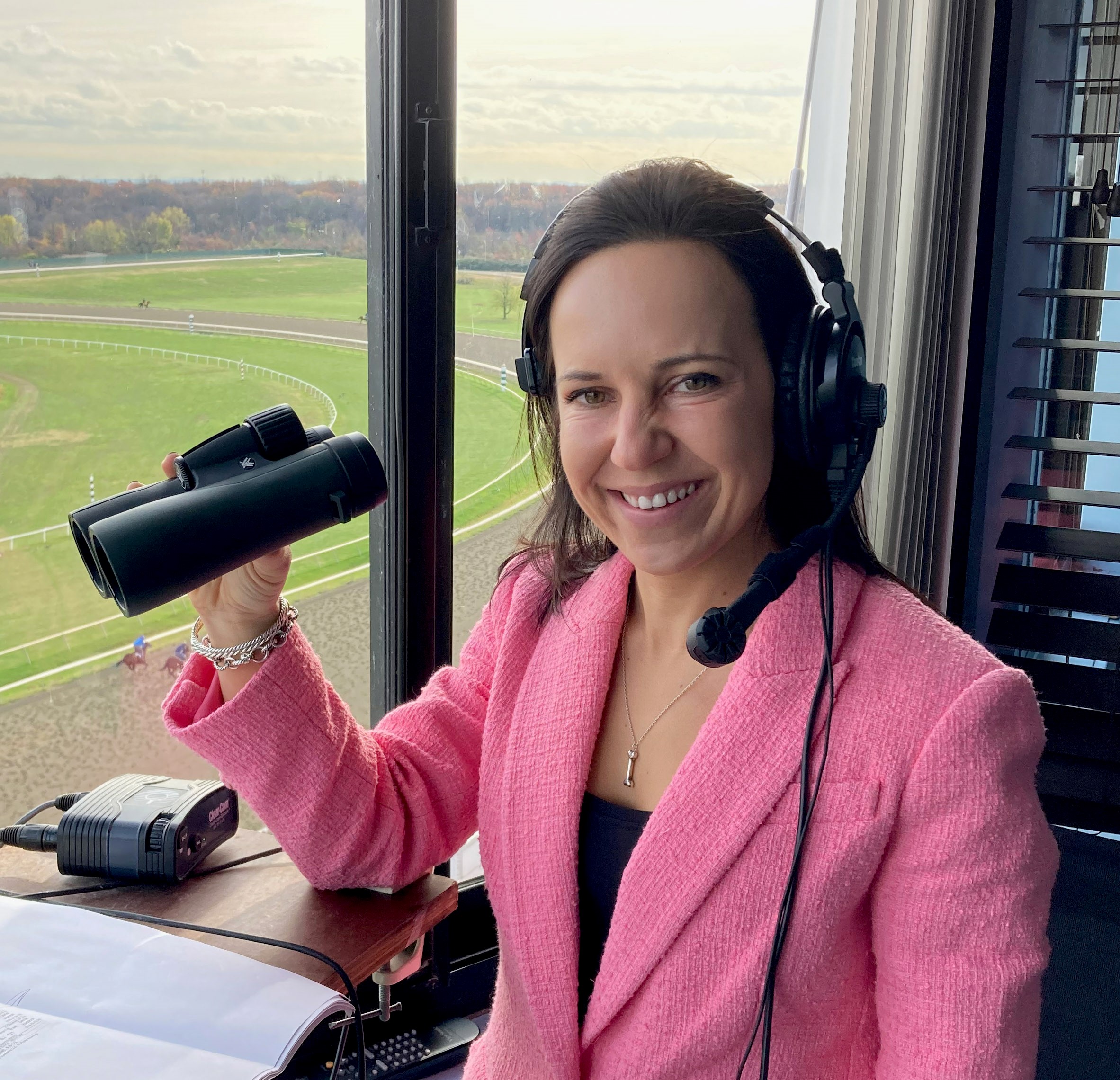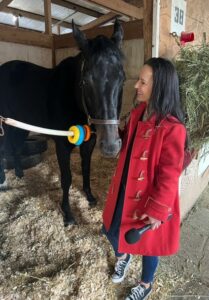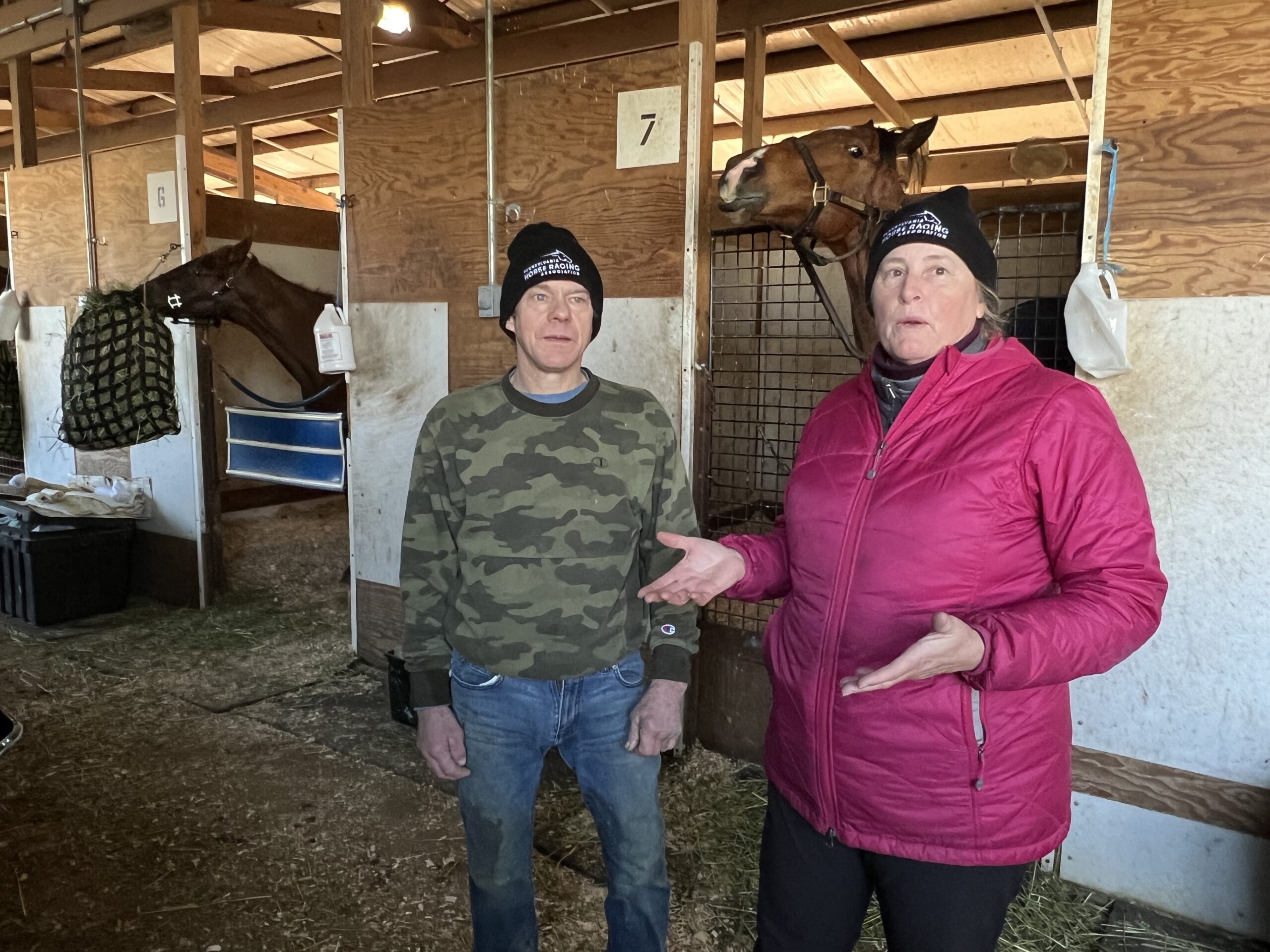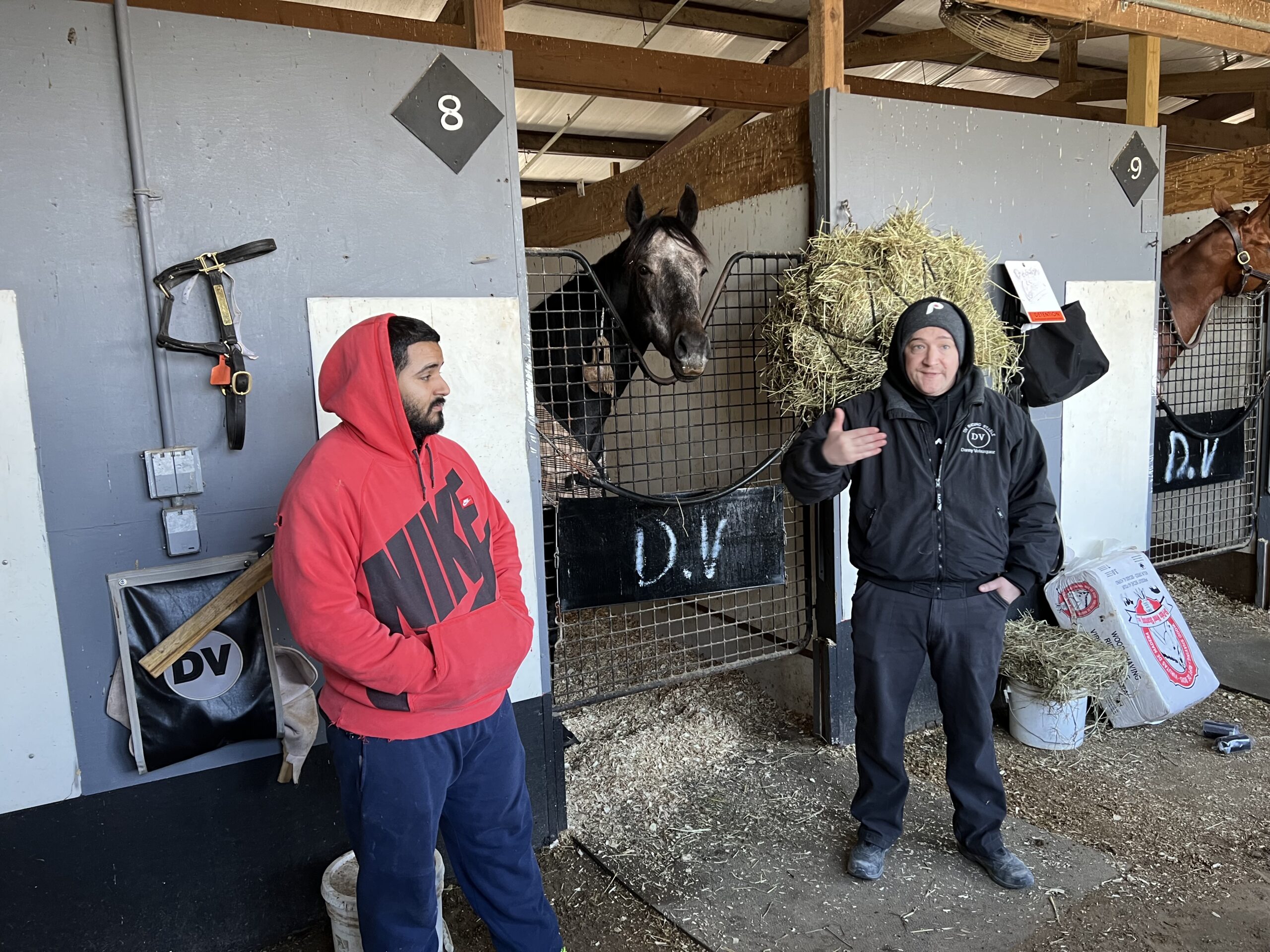DelVal Horse to Run in Preakness Stakes, Second Leg of the Triple Crown
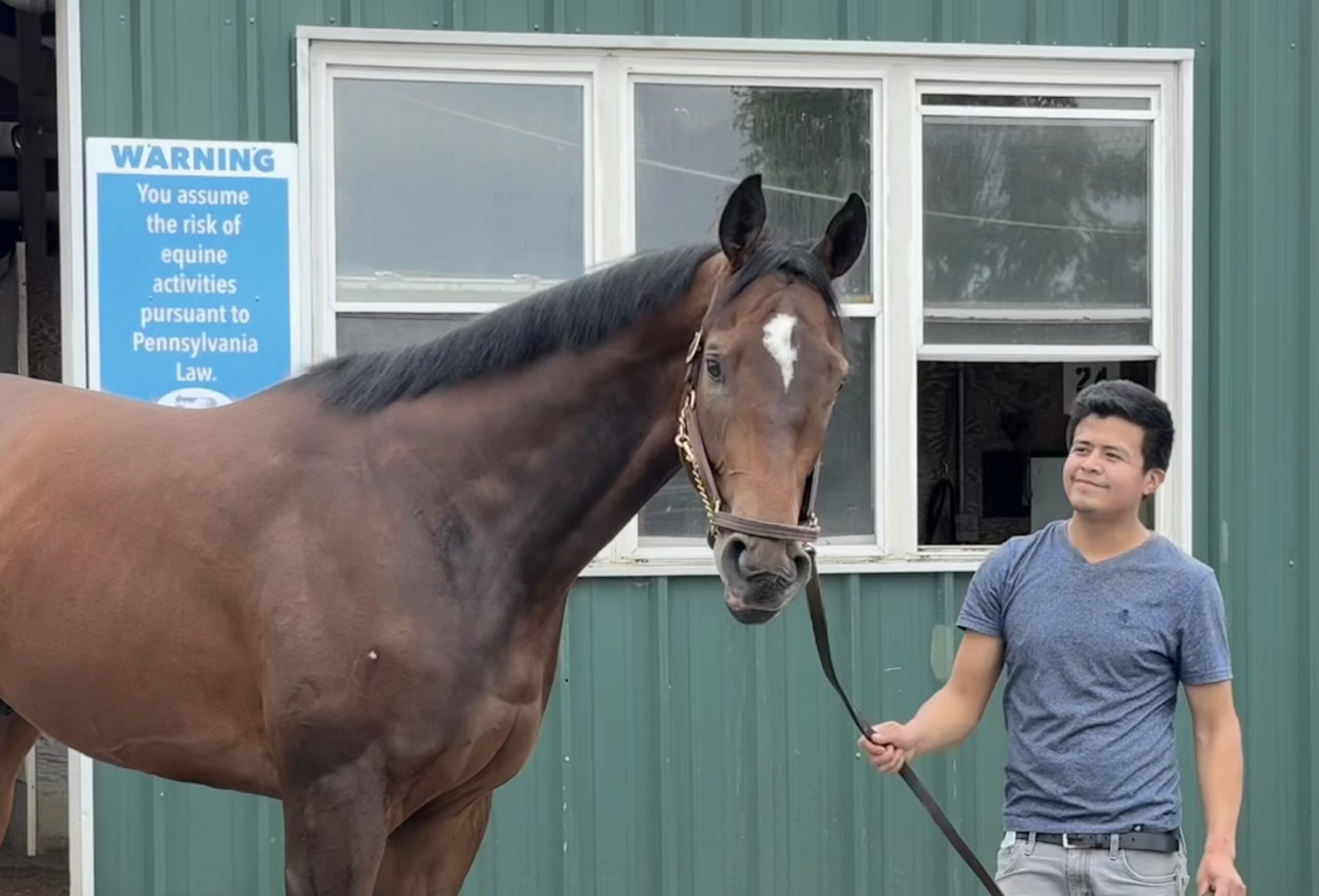
This Saturday, Uncle Heavy, a Delaware Valley bred and trained horse, will run in the $2 million Preakness Stakes, the second race in the Triple Crown.
Uncle Heavy was bred in 2021 by Mark and Barbara Reid at Walnut Green farm in Kennett Square. Reid’s brother, Butch Reid, trains the horse at Parx Racing in Bensalem.
The big bay thoroughbred—over 16 hands tall and 1,200 pounds–has won four of seven races he’s run. He was selected as a second alternate to compete in the Kentucky Derby, but Butch Reid decided to rest Uncle Heavy and race him in the Preakness instead. Held at Pimlico Race Course in Baltimore, it’s the shortest of the Triple Crown races at 1 3/16 miles.
As of this writing, Uncle Heavy had early odds of 20-1.
Derby winner Mystik Dan, who bested two other horses in a close three-way photo finish at the Derby, will also run in the Preakness.
“We know most of the names that’ll be going in there,” said Butch Reid. “With our eyes wide open, a little bit of a fight, but the horse couldn’t be training any better. He’s coming up extremely well. His last two races were just out of sight.”
“We’re looking forward to the opportunity, and we think he’ll be competitive,” he said.
Mark Reid said he was a trainer before his brother, but they get along.
His dad and grandfather both bet on the ponies. One day, when Mark Reid had gotten mononucleosis and had to spend six weeks at home “moping around,” his dad took him to the Atlantic City Racetrack.
“And I fell in love with it,” said Mark Reid. “The horses, not the gambling aspect.”
After graduating college, he worked in industrial sales for a year and a half. But he yearned for the racetrack.
“I told my wife I was casting my lot at the racetrack,” said Mark Reid.
After working for Richard “Dick” Dutrow, a well-known trainer, he built his own string to 150 horses. When his three sons were in high school and playing sports, he decided to spend more time with them, and cut back. One son died while in college, he said. But eventually, he got back in the game.
Mark and Barbara Reid leased their farm in 2005 and bought a bloodstock agency, he said. But after some health problems, Mark Reid, 73, again cut back and he and Barbara have only one mare, Expect Wonderful, who is Uncle Heavy’s mother.
Uncle Heavy, named for one of the Reid’s brothers who was a a former captain of University of Maryland’s wrestling and ACC Champion, who went by the nickname “Heavy.”
Asked when he knew Uncle Heavy was special, Mark Reid said, “He always was nice physically and did everything right. So there was no reason to expect that he wouldn’t be an okay athlete and probably a decent Pennsylvania bred to run around here locally. You never know until they go out in the world whether they’re going to achieve like he did.”
Jockey Irad Ortiz Jr. will ride Uncle Heavy in the Preakness.
“He’s one of the best riders in the world,” said Butch Reid. “I couldn’t ask for a better situation.”
Uncle Heavy has been training well.
“I think we’re coming up to this race just the way we want to be,” said Butch Reid.
Asked about the 20-1odds, Mark Reid said Uncle Heavy had a poor post position, number 13, in a previous race, and another horse fell next to him during the race.
In the Preakness, Uncle Heavy will be in post position 2, near the rail, a much better slot. But the Preakness will “have the Derby winner and a lot of good horses” to compete against, said Mark Reid.
Williamston, N.J. resident Mike Milam, majority owner of Uncle Heavy. Milam has known the Reid brothers for years. Their fathers first met at the racetrack. The minority owner of Uncle Heavy, is Glenn Bennett of LC Racing, a resident of Moorestown, N.J.
Parx will have a Preakness Stakes Day on May 18 to cheer on the hometown favorite. The track will host live racing beginning at 12:40 p.m. and will simulcast the Preakness for fans to watch at the track. Attendees at Parx’s Preakness Stakes Day will also enjoy food and beverage specials, souvenir merchandise, moon bounces, face painting, and more fun for all ages.
Post time for the Preakness is 6:50 p.m. NBC will broadcast the race.

